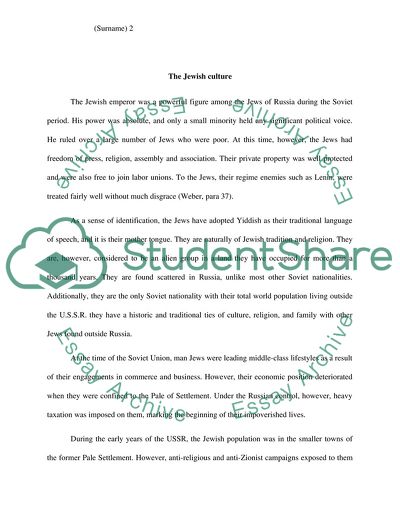Cite this document
(Jewish Diaspora Status Essay Example | Topics and Well Written Essays - 2500 words, n.d.)
Jewish Diaspora Status Essay Example | Topics and Well Written Essays - 2500 words. https://studentshare.org/history/1875780-jewish-diaspora
Jewish Diaspora Status Essay Example | Topics and Well Written Essays - 2500 words. https://studentshare.org/history/1875780-jewish-diaspora
(Jewish Diaspora Status Essay Example | Topics and Well Written Essays - 2500 Words)
Jewish Diaspora Status Essay Example | Topics and Well Written Essays - 2500 Words. https://studentshare.org/history/1875780-jewish-diaspora.
Jewish Diaspora Status Essay Example | Topics and Well Written Essays - 2500 Words. https://studentshare.org/history/1875780-jewish-diaspora.
“Jewish Diaspora Status Essay Example | Topics and Well Written Essays - 2500 Words”. https://studentshare.org/history/1875780-jewish-diaspora.


